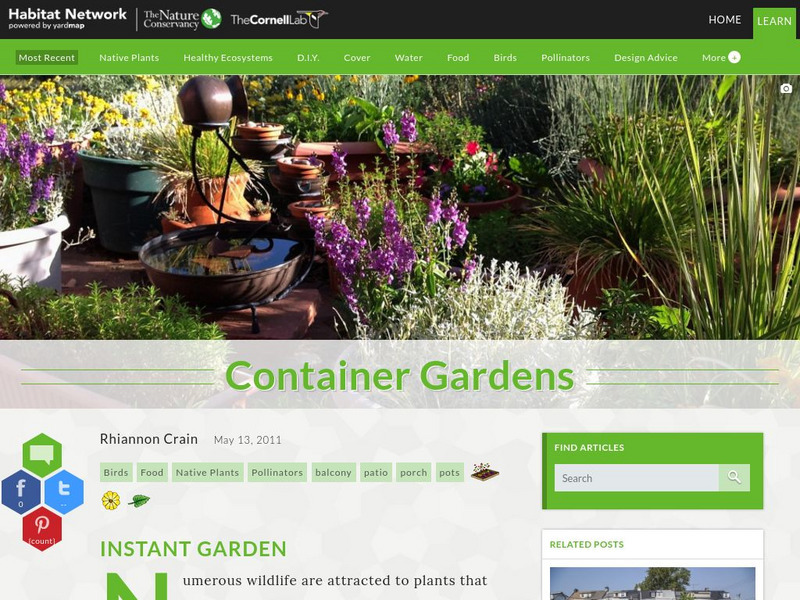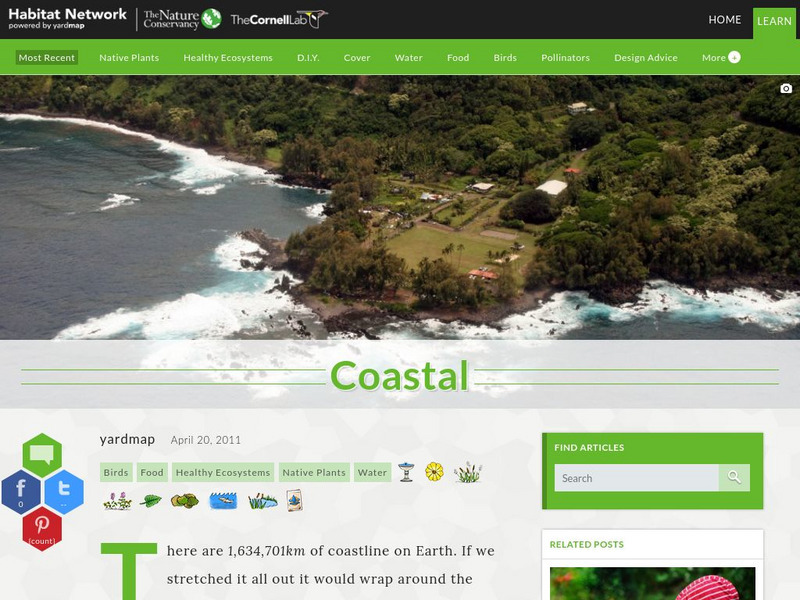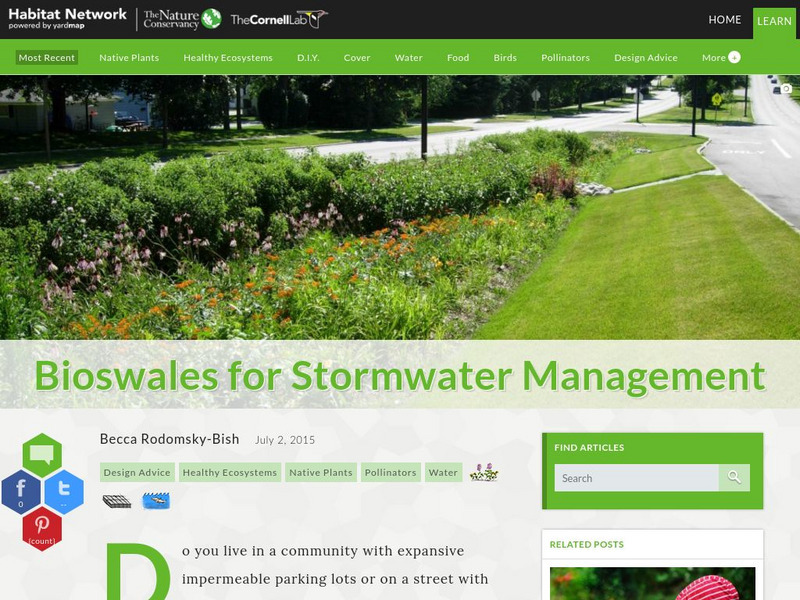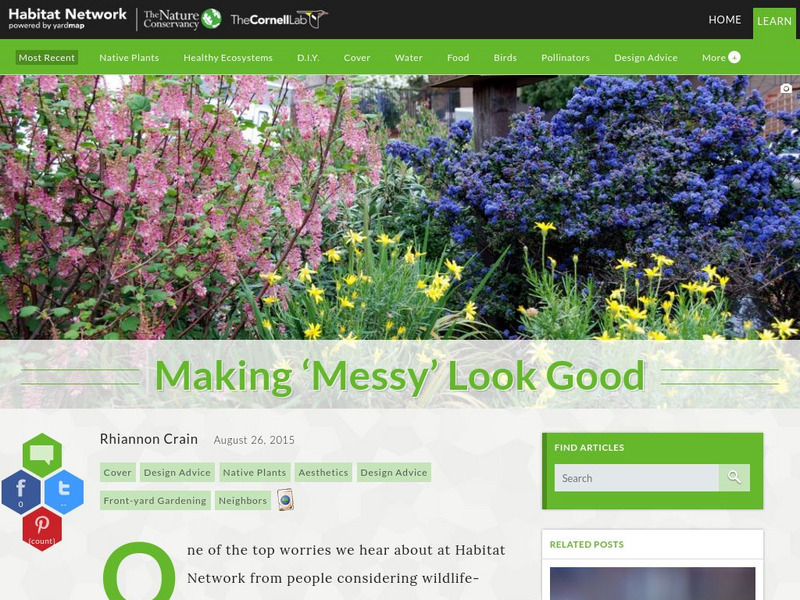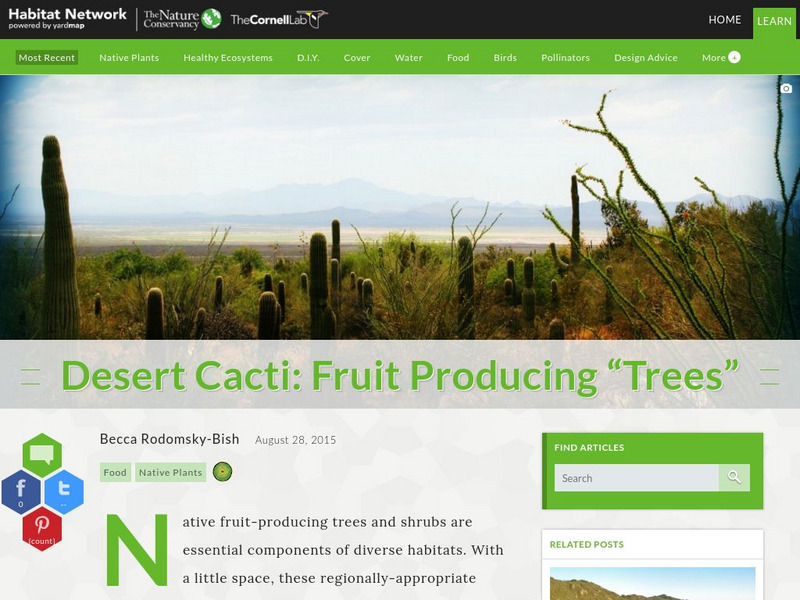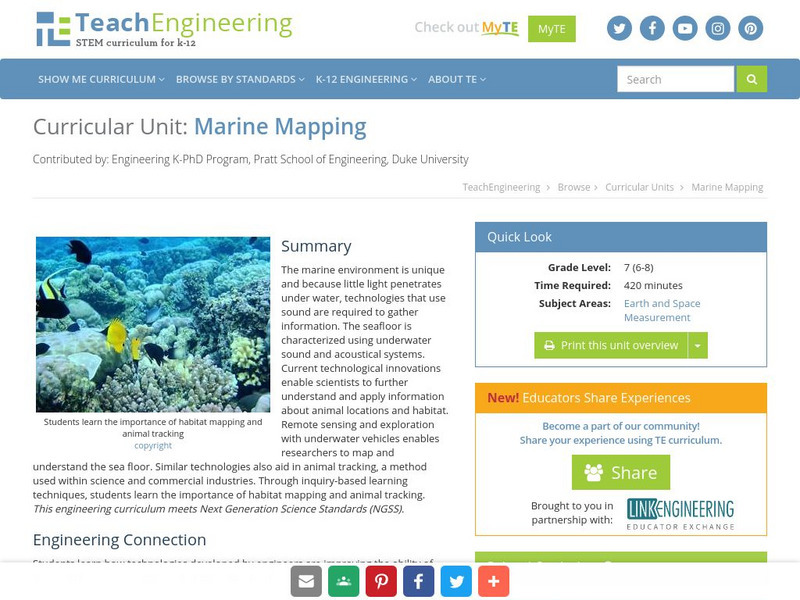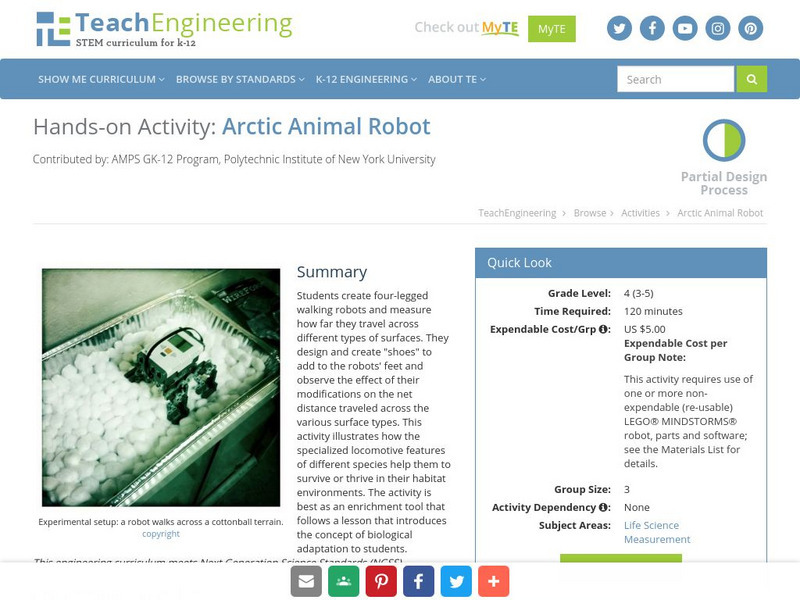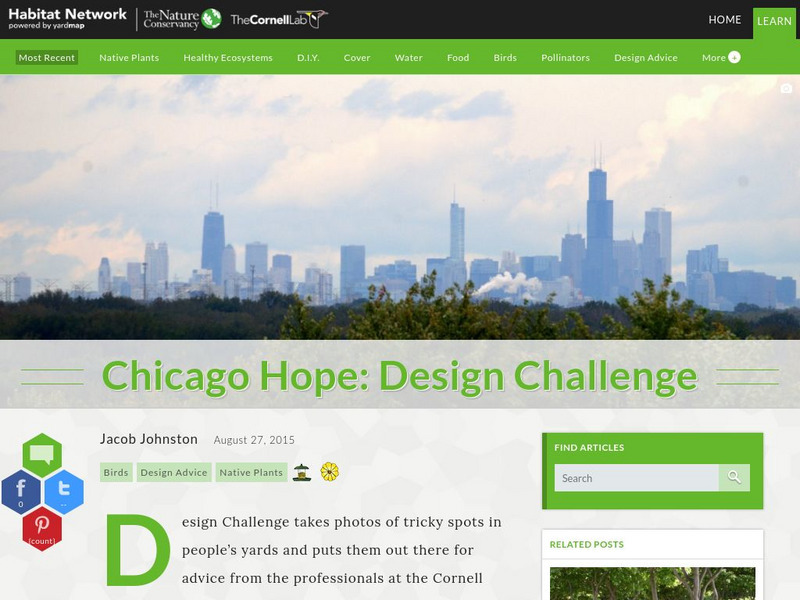Hi, what do you want to do?
Cornell Lab of Ornithology
Habitat Network: At a Community Garden
Learn how to make a sustainable plot as part of a community garden.
Cornell Lab of Ornithology
Habitat Network: Container Gardens
Learn how to maximize the wildlife in a small space by planting a container garden.
Cornell Lab of Ornithology
Habitat Network: Food
Find out about different birds' food preferences, and how those affect their habitats.
Cornell Lab of Ornithology
Habitat Network: Coastal
Learn about coastal habitats, and how to help support nesting shorebirds.
Cornell Lab of Ornithology
Habitat Network: Bog Wetlands
Find out why bogs are one of the most unique and fascinating types of wetlands in North America.
Cornell Lab of Ornithology
Habitat Network: Bioswales for Stormwater Management
Find out how to bring life, diversity, and usefulness to something as common as a drainage ditch.
Cornell Lab of Ornithology
Habitat Network: On a Farm
Learn about the effect that agricultural advancement has had on bird diversity in those environments.
Cornell Lab of Ornithology
Habitat Network: Snags: Nature's Apartment Complexes
Find out why the sometimes hazardous or untidy dead trees are actually quite important to wildlife.
Cornell Lab of Ornithology
Habitat Network: Making 'Messy' Look Good
Get some tips and tricks on making a landscape not only beautiful but ecologically relevant.
Cornell Lab of Ornithology
Habitat Network: Desert Cacti: Fruit Producing "Trees"
Find out why native fruit-producing trees and shrubs are essential components of diverse habitats.
American Geosciences Institute
American Geosciences Institute: Earth Science Week: Mystery Mollusc
Students become marine biologists, and their goal is to characterize the biological communities that live on or near the seamount in the Monterey Bay area. There, they must identify a mystery mollusk.
TeachEngineering
Teach Engineering: Marine Mapping
The marine environment is unique and requires technologies that can use sound to gather information since there is little light underwater. The seafloor is characterized using underwater sound and acoustical systems. Current...
TeachEngineering
Teach Engineering: Arctic Animal Robot
Students create four-legged walking robots and measure how far they travel across different types of surfaces. They design and create "shoes" to add to the robots' feet and observe the effect of their modifications on the net distance...
Alabama Learning Exchange
Alex: Beanie Baby Habitats Collaborative Project
With the booming market of "Beanie Baby" type stuffed animals being so prominent in students' lives, this project brings that interest into the classroom through the use of research, science, hands-on experiences, and technology. The...
Alabama Learning Exchange
Alex: Surviving in the World!
After learning about the survival traits of the chameleon, students will work in groups to research the survival traits of other animals on the Internet and will create a slide show using the collected information to share with the...
University of Arizona
U of Arizona: Using Live Insects in Elem. Classrooms
A collection of twenty lessons with science and math activities that use live insects.
Cornell Lab of Ornithology
Habitat Network: Chicago Hope: Design Challenge
Design Challenge takes photos of tricky spots in people's yards and puts them out there for advice from the professionals at the Cornell Lab of Ornithology. Check out this urban landscape.
abcteach
Abcteach: Ponds
[Free Registration/Login Required] The abcteach directory contains sample pages from their pond unit for non-members. Handouts are in PDF format.
California State University
Cardboard Tree and Endangered Animals Lesson
Two short art lessons in one that introduce young learners to the idea of extinct animals and habitats. Each student will be creating and painting a habitat and assembling an owl. This could be adaptable to use the extinct animal of your...
Curated OER
The Science Behind Algonquin's Animals: Moose
Information is provided on the moose, its general appearance, weight, migration, food sources, habitat, and major predators. This is excellent information for a student research project.
Other
Tulsa Walk: Birds of Prey of Oklahoma
Choose a bird of prey from a convenient drop-down menu to find out more about its conservation status, identifying characteristics, feeding habits, habitat, and nesting behaviors. Information compiled for an eighth-grade science project...






